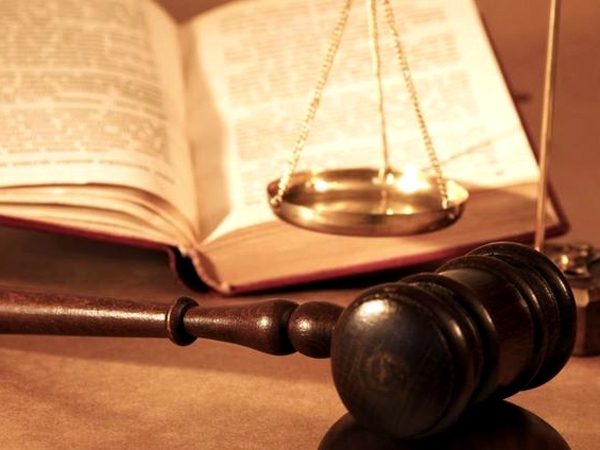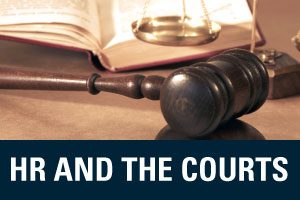by CUPA-HR | October 15, 2024
Each month, CUPA-HR General Counsel Ira Shepard provides an overview of several labor and employment law cases and regulatory actions with implications for the higher ed workplace. Here’s the latest from Ira.
NCAA & Power Conferences Receive Preliminary Approval of Name, Image and Likeness and Anti-Trust Settlement — Ivies Win Dismissal of Anti-Trust Lawsuit
A federal district court judge has given preliminary approval to the NCAA and Power Conferences’ revised $2.8 billion settlement proposal to be paid to college athletes over 10 years. The judge set a fairness hearing for April 2025, with all objections to be filed by January 31, 2025. The federal judge in the Northern District of California concluded that the revised settlement was “fair, reasonable and adequate” (In Re College Athlete NIL Litigation (N.D. Ca. No. 4:20-cv-03919, 10/7/24)).
Commentators immediately voiced concerns that the settlement addresses a small group of male athletes in specific sports to the disadvantage of female athletes. In addition, a number of Division I athletes may express objection on the grounds that the settlement continues to give the NCAA too much control over the free market compensation for student-athletes.
Separately, the eight Ivy League institutions won a dismissal of a federal lawsuit that claimed their ban on athletic scholarships violated anti-trust laws. The federal district court judge assigned to the case granted the Ivy League’s motion for summary judgement, holding that the plaintiffs failed to allege any properly defined market and therefore failed to allege market wide anti-competitive effects (Choh v. Brown University, et. al. (D. Conn. No. 3:23-cv-00305, 10/10/24)).
University of Louisville School of Medicine Loses First Amendment Retaliation Claim Brought by Terminated Professor
A former professor at the University of Louisville School of Medicine will receive a trial over his First Amendment retaliation claims regarding statements he made about gender dysphoria to a conservative think tank. Following comments he made during an event sponsored by the Heritage Foundation, the former medical school professor was demoted and his annual contract was not renewed. The professor expressed the view that gender dysphoria in children “is a sociocultural, psychological phenomenon that cannot be fully addressed with drugs and surgery.”
The 6th U.S. Circuit Court of Appeals ruled unanimously that the university officials who terminated Allan M. Josephson should have known that he was engaged in protected speech, and that terminating him would violate his First Amendment rights. Moreover, the court ruled that the professor’s outside speech was not part of his professorial duties, and therefore subject to his First Amendment claims. The court concluded that a trial is necessary, as there are facts in dispute regarding the rationale for the actions taken against the professor (Josephson v. Ganzel (6th Cir., No. 23-05293, 9/10/24)).
Tenured Professor Loses Defamation Case Against Harvard
A federal district court judge partially dismissed a noted behavioral scientist’s $25 million defamation and breach-of-contract lawsuit against Harvard University. Professor Francesca Gino was placed on administrative leave following claims of data fraud in her research. Gino claimed that the university’s notice on her faculty page that she had been placed on administrative leave after conducting an investigation of her research was libelous because the university acted with ill will.
The court concluded that the professor was a “public figure” and therefore faces a higher standard for proving defamation. A public figure in these circumstances can only prove defamation if the alleged defamer had knowledge that their statement was untrue or acted with reckless disregard for the truth. Moreover, the court concluded that the issue of “research integrity and potential misconduct” is one of public concern, adding to the reason for the dismissal of the defamation claim (Gino v. Presidents and Fellows of Harvard College (D. Mass. No. 1:23-cv-11775, 9/11/24)).
Regarding the professor’s breach-of-contract claims, the professor alleged that the university’s decision to place her on administrative leave and its related disciplinary sanctions were the same as tenure removal. The judge concluded that it is premature to rule on the breach-of-contract claims.
Public School Employees Lose Free Speech Case Challenging Anti-Racism Training
In a case with possible application to public higher ed training, the 8th U.S. Circuit Court of Appeals affirmed the dismissal of a case brought by two Missouri public school employees who claimed that anti-bias employee training violated their First Amendment rights. The lawsuit failed because the court concluded that they were never asked to leave nor were they disciplined for expressing contrary views and that they received professional development credit for attending the anti-racism training (Henderson v. Springfield R-12 School District (8th Cir No. 2301374, 9/12/24)).
The decision provides some clarity on such training, as the court noted that the employees were not compelled to express certain views or refrain from expressing certain views during the training. The appellate court did reverse the trial judge’s ruling requiring the plaintiffs to pay $300,000 in attorney fees for filing a frivolous claim.
Former Student’s Title IX Claim Dismissed as Alleged University Internship Did Not Exist
A federal district court judge dismissed allegations of a sexually abusive internship at the University of Michigan because the plaintiff could not prove the internship actually existed. The court noted that none of the usual formalities, such as an application or a university authorization of an internship, were established.
In light of this, the court dismissed the Title IX claims and allegations of failure to investigate sex harassment and abuse allegations as the plaintiff did not allege discrimination while “participating in or at least attempting to participate in” a university program or activity, as the internship did not exist. The University of Michigan prevailed in the case (Doe v. Baum ((2024 BL 340244 E.D. Mich. No. 4-21-cv-12492, 9/26/24)).
University of Texas Professor Loses First Amendment Complaint
A federal district judge dismissed a University of Texas professor’s First Amendment claim that his speech was “chilled” by unspecific threats following comments critical of “critical race theory and DEI-based ideology.” The judge dismissed the case, holding that the unspecific threats did not rise to the level of an adverse employment action (Lowery v. Mills ((W.D. Tex. No. 1:23-cv-00129, 10/2/24)).
The judge ruled in favor of the University of Texas McCombs School of Business. The judge noted in a footnote, however, that the dismissal was not meant to approve of the university’s actions and that “in the context of a world-class university like UT, differences of opinion should be tolerated by those in authority, no matter that they are uncomfortable, so long as they do not incite violence or disrupt the school’s ability to function as a teaching institution.”
Supreme Court to Review Split in Circuits Regarding Higher Ed ERISA Lawsuit
The Supreme Court has agreed to hear arguments over the split in circuit courts of appeals as to when a university may be sued by employees under the Employee Retirement Income Security Act (ERISA). Employees of Cornell University alleged that improper service provider fees were charged to their pension fund. They are appealing an adverse 2nd Circuit decision stating employees must plead that the alleged “prohibited transaction” by the service provider involved either “unnecessary services” or the fees were “unreasonable” (Cunningham v. Cornell University (US No. 23-1007 cert granted 10/4/24)).
The 2nd U.S. Circuit Court of Appeals, the 3rd Circuit, the 7th Circuit, and the 10th Circuit all require the additional pleading that alleges some kind of fraud or impropriety in order to allow the case to move forward. This contrasts with the 8th Circuit and the 9th Circuit, which apply the “ERISA-as-written” rule. That rule allows a plaintiff to simply allege that a transaction between an employer and a pension or welfare plan service provider occurred and proceed with discovery over whether fraud or some other impropriety exists. We will follow developments in this case as it proceeds.


